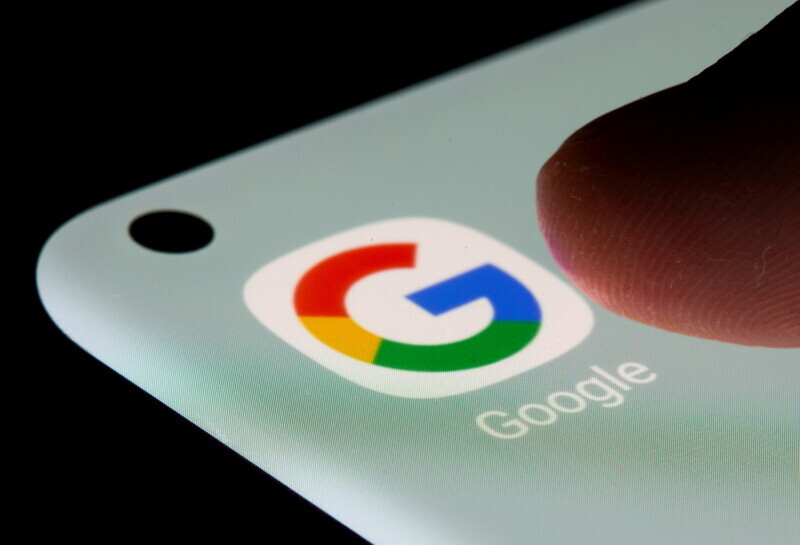hankyoreh
Links to other country sites 다른 나라 사이트 링크
Korea Fair Trade Commission fines Google 207.4 billion won for forcing OS compliance

Google faces its sharpest penalty ever in South Korea after the country’s antitrust authority affirmed charges raised by Samsung Electronics and other smartphone manufacturers about the US-based tech giant’s approach to operating systems. The ruling frees Samsung having to adopt Google’s Android operating system (OS) on all smart devices sold both in Korea and around the world.
Among various antitrust penalties that have been imposed on Google around the world, this latest is unprecedentedly powerful and sweeping. Google said that Korea’s antitrust authority had overstepped its authority and disregarded basic international principles and practices in its decision, which the company plans to immediately appeal.
The Korea Fair Trade Commission (KFTC) said on Tuesday that it had fined Google 207.4 billion won (US$177 million) for strong-arming device manufacturers into signing an anti-fragmentation agreement (AFA) about Android, which it said represents an abuse of the company’s market-dominant position under the Monopoly Regulation and Fair Trade Act. The KFTC also ordered Google to reform its behavior. The ruling came five years after the KFTC launched its investigation into the matter in 2016.
The crux of the issue was the AFA that Google had with device manufacturers. The agreement banned manufacturers from installing modified versions of the Android operating system — known as Android “forks” — on any of the devices they release to market.
One of those forks was an OS developed by Samsung Electronics and installed on its Galaxy Gear smartwatch. Samsung eventually abandoned work on the project under pressure from Google. The AFA forces manufacturers to develop their own source code if they want to use an OS other than Android.
Until now, manufacturers have had little choice but to sign Google’s AFA. Since 2011, Google has only granted Google Play Store licenses and preliminary Android access rights to manufacturers that have signed an AFA.
Preliminary access rights provide companies with the latest version of Android six months before it’s opened up to the public. Such rights are a must-have for companies seeking to manufacture devices with the latest specifications.
The KFTC ruled that Google cannot link such contracts to an AFA going forward and that it must submit a revised version of its current AFA to the KFTC as well.
The KFTC’s ruling is regarded as one of the broadest and most rigorous actions taken by antitrust authorities around the world. The ruling applies to all sales of Samsung Electronics devices both inside and outside of Korea — and Samsung Electronics is the leading manufacturer of Android devices.
The KFTC found that it had jurisdiction for Samsung Electronics’ overseas sales in addition to its domestic ones because the company is based in South Korea. The order applies not only to smartphones but also to smartwatches and all other devices that come loaded with an OS. An earlier penalty issued by the European Commission only applied to smartphones sold within Europe.
“[Google’s behavior] impeded innovation in the area of the development of OS for smart devices amid growing competition over next-generation platforms. Our expectation is that this will stimulate competition in developing OS [in this area],” said KFTC Chairperson Joh Sung-wook.
“The KFTC extended the scope of its order to other countries and is compelling us to follow it even in countries that have already explicitly found that our Android compatibility program does not violate local competition laws. We are planning to appeal this in the courts,” Google said in a statement released after the KFTC’s announcement.
By Lee Jae-yeon, staff reporter
Please direct questions or comments to [english@hani.co.kr]

Editorial・opinion
![[Guest essay] Preventing Korean Peninsula from becoming front line of new cold war [Guest essay] Preventing Korean Peninsula from becoming front line of new cold war](https://flexible.img.hani.co.kr/flexible/normal/500/300/imgdb/original/2024/0507/7217150679227807.jpg) [Guest essay] Preventing Korean Peninsula from becoming front line of new cold war
[Guest essay] Preventing Korean Peninsula from becoming front line of new cold war![[Column] The state is back — but is it in business? [Column] The state is back — but is it in business?](https://flexible.img.hani.co.kr/flexible/normal/500/300/imgdb/original/2024/0506/8217149564092725.jpg) [Column] The state is back — but is it in business?
[Column] The state is back — but is it in business?- [Column] Life on our Trisolaris
- [Editorial] Penalties for airing allegations against Korea’s first lady endanger free press
- [Editorial] Yoon must halt procurement of SM-3 interceptor missiles
- [Guest essay] Maybe Korea’s rapid population decline is an opportunity, not a crisis
- [Column] Can Yoon steer diplomacy with Russia, China back on track?
- [Column] Season 2 of special prosecutor probe may be coming to Korea soon
- [Column] Park Geun-hye déjà vu in Yoon Suk-yeol
- [Editorial] New weight of N. Korea’s nuclear threats makes dialogue all the more urgent
Most viewed articles
- 1[Guest essay] Preventing Korean Peninsula from becoming front line of new cold war
- 2Yoon’s broken-compass diplomacy is steering Korea into serving US, Japanese interests
- 360% of young Koreans see no need to have kids after marriage
- 4After 2 years in office, Yoon’s promises of fairness, common sense ring hollow
- 5[Column] Why Korea’s hard right is fated to lose
- 6S. Korean first lady likely to face questioning by prosecutors over Dior handbag scandal
- 7[News analysis] Jo Song-gil’s defection and its potential impact on inter-Korean relations
- 8[Column] “Hoesik” as ritual of hierarchical obedience
- 9Amid US-China clash, Korea must remember its failures in the 19th century, advises scholar
- 1011 years after US decamped, military base in Busan still festering with pollution